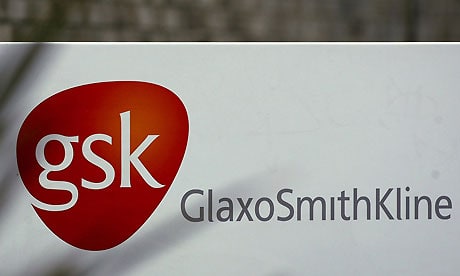
GSK cancer vaccine fails again
pharmafile | March 20, 2014 | News story | Sales and Marketing | Cancer, GSK, MAGE-A3 cancer immunotherapeutic, NSCLC, lung cancer, melanoma
GlaxoSmithKline’s MAGE-A3 cancer immunotherapeutic has delivered another late-stage blow to the firm but it still vows to continue trials.
The ‘MAGRIT’ trial for GSK’s therapy in non-small cell lung cancer (NSCLC) patients reveals it did not meet its first, or second co-primary endpoint as it did not significantly extend disease-free survival.
Vincent Brichard who is the senior VP and head of Immunotherapeutics at GSK Vaccines, says: “We are disappointed that the trial did not demonstrate a benefit for overall MAGE-A3 positive patient population, but we remain committed to the effort to identify a sub-population of NSCLC patients who may benefit from this investigational treatment.”
The British pharma giant will continue the trial in order to assess the third co-primary endpoint, which is disease-free survival in a gene signature positive sub-population.
Bad news follows the therapy which last year failed to beat placebo in a late-stage trial testing it against the deadliest form of skin cancer – melanoma. That also delivered a blow to the firm and stopped it competing against Bristol-Myers Squibb’s successful Yervoy (ipilimumab) treatment.
Some comfort will be that GSK already has two melanoma treatments on the market however: Tafinlar (dabrafenib) and Mekinist (trametinib), which are expected to have combined peak sales of more than $1 billion.
GSK’s third co-primary endpoint is designed to identify a subset of MAGE-A3 positive patients that may benefit from the treatment with its cancer immunotherapeutic.
MAGE-A3 is a tumour-specific antigen expressed in a variety of cancers but not in normal cells. In NSCLC, it is expressed in approximately one-third of tumours in patients diagnosed with Stage IB-IIIA disease.
The MAGRIT trial enrolled 2,312 MAGE-A3-positive patients across more than 400 sites in 34 countries worldwide. Results from a final analysis are expected in 2015.
Brichard added: “We want to thank all patients, their families and healthcare workers for their involvement in the MAGRIT trial.”
Brett Wells
Related Content

GSK’s Exdensur receives MHRA approval for asthma and rhinosinusitis
GSK’s Exdensur (depemokimab), a twice-yearly biological medicine, has received approval from the UK Medicines and …

HUTCHMED completes enrolment in phase 3 trial for lung cancer
HUTCHMED has completed patient enrolment for the SANOVO phase 3 clinical trial, investigating the use …

Graphene-based biosensor to support new lung cancer screening test
HydroGraph, a Canadian producer of ultra-pure graphene, has announced a partnership with Hawkeye Bio and …





